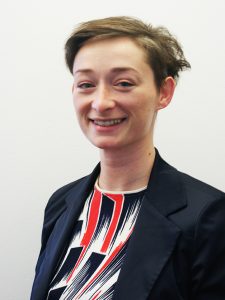News Story
KMi PhD Student success in winning HEIF funding
Thursday 1 Jun 2017
The Augmented Reality in Activism (ARIA) Project launched this week at KMi with the aim of improving inclusive participation in social protest and campaigning. ARIA will utilise Augmented Reality (AR) and Web technologies to enable people to remotely engage in social activism. AR allows digital and physical world to coexist in the same space. With the help of mobile devices and head-mounted displays, any user is able to visualize digital objects placed in the physical space, providing an extra layer of information and interaction with the real world. In the ARIA project, AR enables those who support a given cause, but who are not able to visit a physical protest or event, to be "digitally" present and engage with the rest of the participants. Through a web interface, activists will be able to place a digital avatar at the location of the event, along with a short statement expressing their views. Those who are physically present at the event will be able to download an AR application that will show them the people remotely supporting the cause: Looking through their smartphone or other device’s camera they will see in the space around them the avatars of those the remote supporters.
Initial testing will be conducted with an online campaigning organisation in Poland and a local charity in Milton Keynes. Organisational leaders hope that this tool can help reach out to activists with typically low participation, such as individuals with mental health issues (such as anxiety or depression), activists with mobility issues and those who are threatened by any kind of violence.
Over the next three months, the ARIA team (Beppe Scavo, Alberto Ardito, Tracie Farrell Frey and senior staff member Anna De Liddo) will develop a multiple campaign website creator and manager that will utilise a submission service to allow potential users to launch a new campaign and attract supporters. Organisations and potential participants will also have access to a campaign geovisualiser to provide an overview of digital participation in the campaign. The first steps of ARIA will be funded through Higher Education Innovation Funding (HEIF), after a successful bid by PhD student Tracie Farrell Frey.
Latest News
PhD Awarded for Groundbreaking Research on Game-Based Cyber Security Training
KMi at the Palace of Westminster: Exploring Blockchain for Society and Economy
OUAnalyse at the Digital Ethics Summit 2025: Advancing Responsible AI in Education

